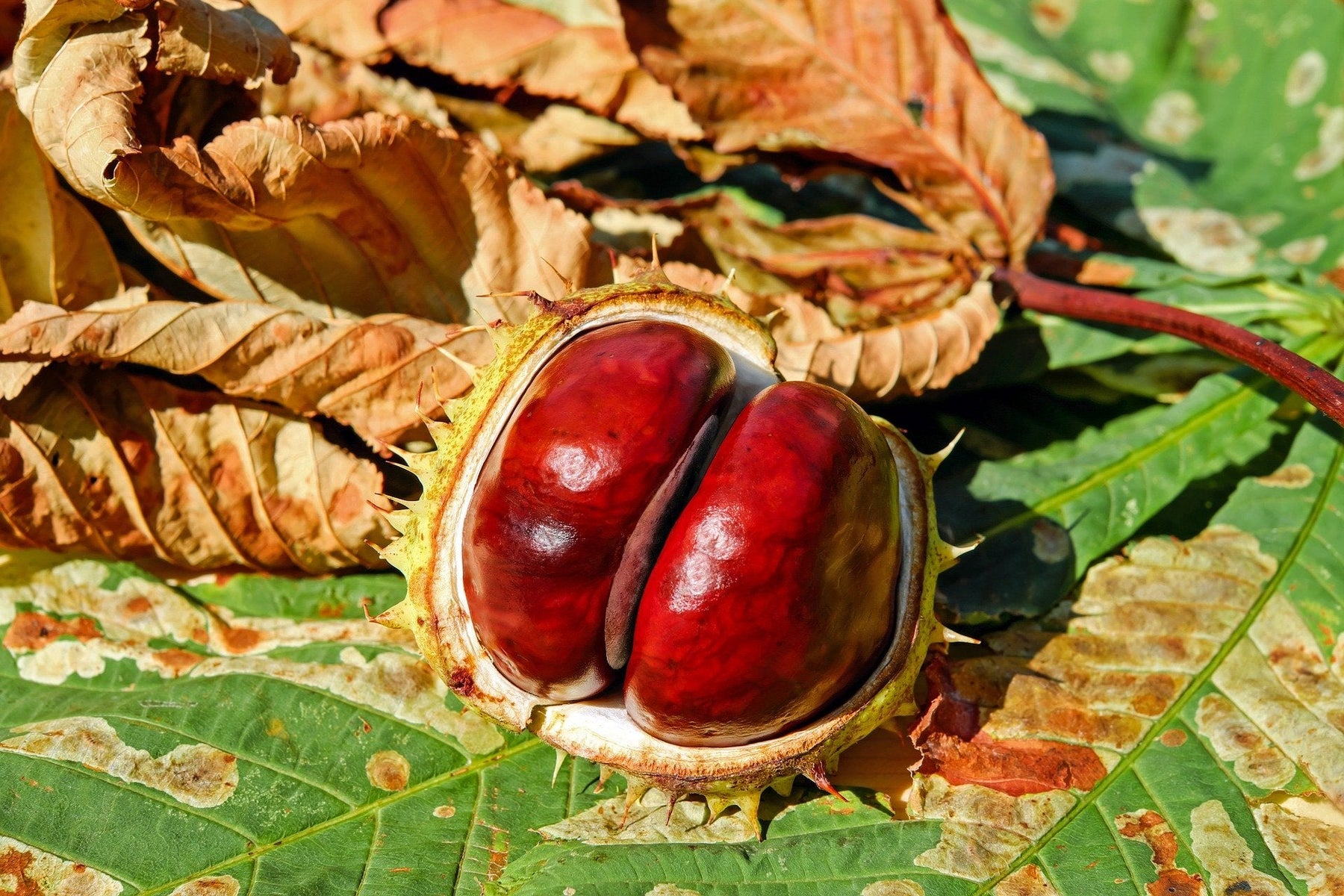
Horse Chestnut Supplements
The horse chestnut (Aesculus hippocastanum) is a tree native to certain areas of South East Europe that is now cultivated throughout the Northern Hemisphere. Its name seems to have originated from the mistaken beliefs that the tree was a chestnut and that its fruit could cure chest complaints in horses.
The seeds of the tree are used in a children’s game called Conkers, which was traditionally played in Britain and Ireland. The World Conker Championships were first held in Ashton, East Northamptonshire, England in 1965. There are now official Conker Championships in various regions throughout the world. Recreational potential aside, the seeds, bark, flower, and leaves of the horse chestnut tree are used in various medicines.
Traditionally, horse chestnut parts were used for various conditions and diseases, and horse chestnut seed extract is now used as a remedy for a condition called chronic venous insufficiency (CVI), in which the veins cannot pump sufficient blood to the heart. The leg is the most common site for this condition, which is accompanied by all sorts of lovely symptoms, including outright pain, inflammation, ulcers, and various skin abnormalities. Horse chestnut seed is sometimes used for fever, diarrhea, and enlarged prostate.
The leaf is used for menstrual pain, cough, arthritis, and general joint pain. The bark has been used for dysentery and malaria. But the wary consumer would do well to remember that most of these uses have yet to be substantiated by credible scientific research, and raw, unprocessed horse chestnut parts contain æsculin, the consumption of which can have serious attendant side effects, the most notable being death. The National Institutes of Health (NIH) advises pregnant or breastfeeding women to abstain from horse chestnut products in general until their safety is verified. All consumers ought to verify the safety and legitimacy of a given horse chestnut product prior to ingestion.


Leave a comment